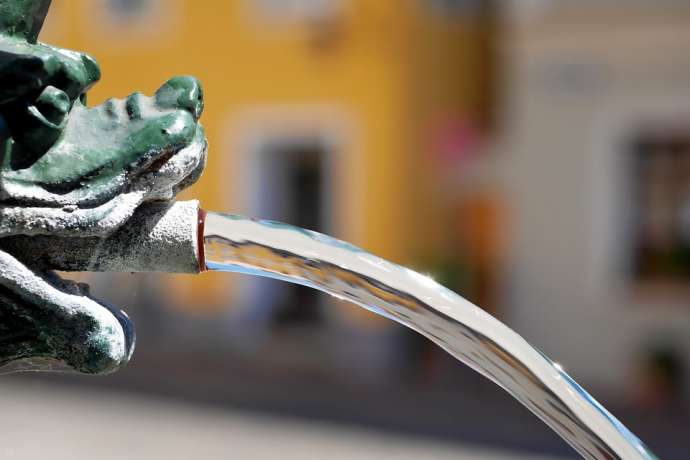STA, 25 May 2021 - Slovenians will head to the polls on 11 July to vote on amendments to the water act that have pitted environmentalists, who say the legislation paves the way for the build-up of coastal land, against the government, which says their claims are misguided.
The referendum was supposed to be held on 4 July, but it was pushed forward by a week after it was determined that recent electoral law changes had inadvertently left out a few settlements with roughly 800 inhabitants.
The delay, the coalition argued, is needed so that electoral law can be fixed in time. The opposition countered that this was merely a manoeuvre designed to push the date deeper into the summer season.
"If the [coalition] cannot ban the referendum, at least it will adjust the date so that turnout is minimised, because we know that a quorum is required to vote down a law," LMŠ deputy Tina Heferle said.
The vote will be held after an alliance of green and leftist NGOs gathered well over the 40,000 signatures required to call a referendum.
The NGOs have focused on amendments concerning the development of coastal areas that they say would be a boon to private investors and could jeopardise not just surface waters but also groundwater in the long term.
The government has dismissed the allegations as fabricated, with Environment Minister Andrej Vizjak reiterating today that the legislation would achieve the exact opposite of what the environmentalists claim.
He said it brought more money for maintenance of waterways and narrowed the scope for construction in coastal areas.
Left MP Nataša Sukič wondered whether this means all environmentalists in the country were ignorant and unable to understand the legislative provision.
A law is rejected in a referendum if the majority vote against and the no votes represent at least a fifth of all eligible voters.
The last referendum, held in 2017 and concerning the construction of the Divača-Koper rail track, was unsuccessful.
Waters act referendum proponents convinced voters will say no
STA, 26 May 2021 - The proponents of the referendum on changes to the waters act, scheduled for 11 July, believe that they will be able to convince the voters to reject what they see as controversial legislation despite the unfavourable date. They expect a difficult campaign ahead in which the other side could mislead people and instigate divisions.
The date was set by the National Assembly on Tuesday after the initially proposed date, 4 July, was pushed forward after it was determined that recent electoral law changes had inadvertently left out a few settlements with roughly 800 residents.
The delay, the coalition argued, is needed so that the electoral law can be fixed in time, while the opposition countered that this was merely a manoeuvre designed to push the date deeper into the summer season.
The initiative for the referendum was given by an alliance of green non-governmental organisations who say the legislation paves the way for more construction on coastal land and river banks, against the government, which says their claims are misguided.
Commenting on the date, Uroš Macerl of the Drinking Water Movement told the STA on Wednesday that it was "logical that they wanted to set the most unfavourable date and push it deep into the holiday season. This had in a way been expected."
According to him, the postponement of the date and the "insulting dialogue" in parliament is proof that the proponents of the changes are afraid and aware that "we have managed to bring a large number of people of different views together".
The proponents of the referendum are ready to encourage voters to hit the polls in the largest possible numbers despite the difficult conditions and the unfavourable date. Macerl expects a difficult campaign that would attempt to divide people.
"They believe that we have left and right water, but people are not that stupid," said Macerl, who believes that people of different creeds, including political, will rally around the goal to protect drinking water for all Slovenians.
"We must protect drinking water for future generations as the greatest asset Slovenia has," he said, noting that the changes allowed construction of hotels, shops and shopping malls along the sea coast and river and lake banks.
The new law will be rejected if a majority of those going to the polls vote against it, yet only if at least 20% of all eligible voters go to the polls. The last referendum in 2017, concerning a huge rail project, failed on both counts.






